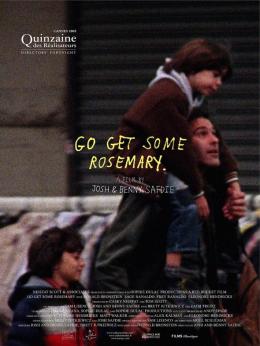






De Beauvoir had declared that whatever her many books and literary prizes, whatever her role in the women's movement or as an intellectual ambassador championing causes such as Algerian independence, her greatest achievement in life was her relationship with Sartre - philosopher, playwright, philanderer, born 100 years ago this month.
There is something mysterious in De Beauvoir's insistence. Given Sartre's other liaisons, and that this was the height of the women's movement, it seems to fly in the face of common sense. Yet the Simone who had flouted convention in the 20s by entering into an open liaison with an ugly, charismatic young unknown was not about to conform to expectations.
Whether we agree with her own startling assessment or not, it's clear that De Beauvoir was neither lying nor, as some misogynist commentators have argued, simply writing herself into a life more important than her own. After all, for 51 years, whether they were living close to one another or apart, she edited and, as Sartre himself put it, "filtered" his work, which he dedicated to her (some have ventured that, on occasion, she wrote it too). For 51 years, the conversations between them created ideas, books, and a bond which other passions enraged or enriched, but never altogether ruptured. It was, for De Beauvoir, an experiment in loving of which "existentialism" was the child.
When I was growing up in the 60s, Simone de Beauvoir and Jean-Paul Sartre were a model couple, already legendary creatures, rebels with a great many causes, and leaders of what could be called the first postwar youth movement: existentialism - a philosophy that rejected all absolutes and talked of freedom, authenticity, and difficult choices. It had its own music and garb of sophisticated black which looked wonderful against a cafe backdrop. Sartre and De Beauvoir were its Bogart and Bacall, partners in a gloriously modern love affair lived out between jazz club, cafe and writing desk, with forays on to the platforms and streets of protest. Despite being indissolubly united and bound by ideas, they remained unmarried and free to engage openly in any number of relationships. This radical departure from convention seemed breathtaking at the time.
De Beauvoir wrote about this in the autobiography she began to publish in the late 50s, after the scandalous success of her exposé of being female, The Second Sex, and her Goncourt prize-winning novel, The Mandarins, where she chronicles, among much else, her postwar affair with the American novelist Nelson Algren, whom she left in order to return to Sartre, abandoning passion for public responsibility.
De Beauvoir and Sartre met in 1929 when they were both studying for the aggregation in philosophy, the elite French graduate degree. De Beauvoir came second to Sartre's first, though the examiners agreed she was strictly the better philosopher and at the age of 21 the youngest person ever to have sat the exam. But Sartre, the future author of Being and Nothingness, was bold, ingenious, exuberant in his youthful excess, the satirical rebel who shouted, "Thus pissed Zarathustra" as he hurled water bombs out of classroom windows.
Sartre was the pampered son of a widowed mother. Educated in French and German by his pedagogue grandfather, the young Sartre, diminutive, wall-eyed, was corresponding in alexandrines by the age of 10 and something of an outcast at his provincial school. By the time he returned to Paris, he had learned to make up for his physical lacks by the sheer force of his personality. De Beauvoir was captivated by the intensity with which he also listened.
The young Sartre already saw himself as a Don Juan, a seducer who ruptured outworn convention, and whose presence revealed things in their fundamental light. Seduction and writing, he believed, had their source in the same intellectual process.
Late in life, he admitted that he had fantasised a succession of women for himself, each one meaning everything for a given moment. De Beauvoir had astonished him by agreeing to the experiment he had outlined. She accepted the freedom he insisted on and became its custodian.
"What we have," he said early on to De Beauvoir, "is an essential love; but it is a good idea for us also to experience contingent love affairs." Recording Sartre's proposal, De Beauvoir writes: "We were two of a kind, and our relationship would endure as long as we did: but it could not make up entirely for the fleeting riches to be had from encounters with different people."
It is difficult to underestimate the sheer adventurousness of this pact forged in 1929. Particularly on De Beauvoir's side, the break from accepted norms was monumental, as was the social stigma. For De Beauvoir, Sartre seemed only to be repeating what, from her father's example and bourgeois practice, she understood as a male prerogative. What was different about their relationships was that she, the woman, would be equally free to engage in other affairs. Then, too, there was Sartre's important dictum of "transparency" - the vow that they would never lie to each other the way married couples did. They would tell each other everything, share feelings, work, projects.
Yet in this lifelong relationship of supposed equals, he, it turned out, was far more equal than she was. It was he who engaged in countless affairs, to which she responded on only a few occasions with longer-lasting passions of her own. Between the lines of her fiction and what are in effect six volumes of autobiography, it is also evident that De Beauvoir suffered deeply from jealousy. She wanted to keep the image of a model life intact. There were no children. They never shared a house and their sexual relations were more or less over by the end of the war, though for much of their life and certainly at the last, they saw each other daily.
With the posthumous publication in 1988 of her letters to Sartre, a good proportion of them written during the war years when he was at the front and then a prisoner, gaps that were left out of the autobiography are filled in. What the letters express is not only De Beauvoir's overarching love for a man who is never sexually faithful to her, a man she addresses as her "dear little being" and whose work she loyally edits. They also underline the mundanity of De Beauvoir's early accommodation to his wishes, her acceptance of what many women would reject as demeaning, her dependence.
But this dependence is hardly simple or passive. It is a shared attachment from which power also comes - as De Beauvoir, in The Second Sex, shows it does for all women. From early on, Notre-Dame-de-Sartre, as the wits dubbed her, organises the comings and goings of Sartre's "contingent" women; she encourages, consoles, manipulates, and continues to do so until the very end for that loose grouping of friends and exes they called their "family". With a few exceptions, she performs whatever Sartre at the Front asks of her, including finding money for him, or having an affair.
The voyeuristic narration of the details of sexual passion for the other's entertainment, the ups and downs and seamy manoeuvres of these relationships give Sartre and De Beauvoir the aura of a latter-day Valmont and Merteuil, planning and reporting on their dangerous liaisons, analysing assaults and retreats, and deliberating over the propaganda which is to surround them. On top of all this are De Beauvoir's lesbian pursuits and her sharing of Sartre's partners. Bluestocking she might have been, but De Beauvoir was never averse to taking hers off, and then letting Sartre know.
It would be easy to condemn Sartre and De Beauvoir, to dismiss their sex lives as squalid and find therein reason to undermine their intellectual or political projects. This would be to miss the great edifice that De Beauvoir constructed out of their mutual experiment in living; the often gruelling honesty they both brought to bear on each other; and the ways in which the living and changing organism that was their partnership shaped both their philosophical writings and their fiction. It was clear to De Beauvoir that Sartre was a great thinker: thought needed tending. Happiness, that state she claimed she had a talent for, was not the point.
Then, too, there may be another very good reason why De Beauvoir thought her relationship was her greatest achievement. The Second Sex is her encyclopaedic and shocking account of woman's condition as "other" in a world where the norm, with all its overarching and defining power, was male. The book analyses how women have been made over in a world of male descriptions, the contortions performed in order to draw something from the secondary role, the mutilation, the pain. In the experiment of her relationship with Sartre, De Beauvoir took over the power of description. She writes him in and through her life. Maybe that was partly what she meant by her greatest achievement - alongside a generous love, respect and abiding loyalty.


Seigneur, je suis dans le quartier des bons voleurs, Des vagabonds, des va-nu-pieds, des recéleurs. Je pense aux deux larrons qui étaient avec vous à la Potence, Je sais que vous daignez sourire à leur malchance. Seigneur, l’un voudrait une corde avec un noeud au bout, Mais ça n’est pas gratis, la corde, ça coûte vingt sous. Il raisonnait comme un philosophe, ce vieux bandit. Je lui ai donné de l’opium pour qu’il aille plus vite en paradis. Je pense aussi aux musiciens des rues, Au violoniste aveugle, au manchot qui tourne l’orgue de Barbarie, A la chanteuse au chapeau de paille avec des roses de papier ; Je sais que ce sont eux qui chantent durant l’éternité. Seigneur, faites-leur l’aumône, autre que de la lueur des becs de gaz, Seigneur, faites-leur l’aumône de gros sous ici-bas. Seigneur, quand vous mourûtes, le rideau se fendit, Ce qu’on vit derrière, personne ne l’a dit. La rue est dans la nuit comme une déchirure Pleine d’or et de sang, de feu et d’épluchures. Ceux que vous avez chassé du temple avec votre fouet, Flagellent les passants d’une poignée de méfaits. L’Etoile qui disparut alors du tabernacle, Brûle sur les murs dans la lumière crue des spectacles. Seigneur, la Banque illuminée est comme un coffre-fort, Où s’est coagulé le Sang de votre mort. Les rues se font désertes et deviennent plus noires. Je chancelle comme un homme ivre sur les trottoirs. J’ai peur des grands pans d’ombre que les maisons projettent. j’ai peur. Quelqu’un me suit. Je n’ose tourner la tête. Un pas clopin-clopant saute de plus en plus près. J’ai peur. J’ai le vertige. Et je m’arrête exprès. Un effroyable drôle m’a jeté un regard Aigu, puis a passé, mauvais comme un poignard. Seigneur, rien n’a changé depuis que vous n’êtes plus Roi.
Blaise Cendrars (et Sonia Delaunay), Editions des Hommes Nouveaux 1912, 1913






